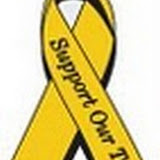MY DECLARATION OF DEPENDENCE
When in the course of life’s events it becomes necessary through an honest self-inventory for one person to make amends for the hurts which have disconnected him from others and to admit his own defects of character by which the Laws of God and of God’s grace he has been granted forgiveness, an honest appreciation for the contributions of others demands that he should desire the willingness to repair the differences that have caused him to become separated from those he has harmed.
He knows these experiences to be self-revelatory, that he has not treated all others as equal, that he did not provide them with the opportunity to show him compassion, that among his shortcomings have been intolerance, bigotry, and self-indulgence -- That to pursue their forgiveness, he must depend upon the grace and virtue of those he harmed, acquiring his willingness and ability to perform his amends through his complete surrender to God – That wherever the opportunity to make amends is presented, it is his responsibility to be willing to do so, to be sincere in his efforts, and to avoid doing further harm, holding forth the hope that by initiating such action God will remove these defects of his character so as to prevent any future recurrences of such injuries to others in comparable circumstances and accept the injured party’s right to respond as able to his attempts to make those amends.
Care to avoid further injury, indeed, will dictate his actions to insure his amends are not disguised for purely selfish gain and are not done for superficial reasons; and accordingly all his experience will show that others have been more likely to forgive, when allowed to forgive, than to avenge themselves against him by retaliating for the evil he has done them or those they loved.
However, when he has caused a long train of hurt and injury to others, pursuing only his own profit or pleasure as evidenced by the reduction of their ability to retain affection for him, it is their right to accept or reject any attempt he may make to repair the damage his actions has caused, to repel him from their presence, and to seek stronger, healthier relationships with others for their future safety and sanity. Their patient suffering has been their burden alone and only God’s love with their forgiveness can release them from responding in disbelief to his sincerity.
He, therefore, the person who has done harm, must appeal to the Supreme Judge of the world for the opportunities needed to provide those harmed with alterations to his actions such that they are satisfied that he means them no further injury and has accepted God's will for his life.
That the injured are and of right ought to be free of obligation to him, that they are absolved from acceptance of his advances, and that all future connections, if any, are and ought to be the injured party’s sole preference.
He further acknowledges that injuries others may have done him is not his to rectify and, being reminded of his own shortcomings, that he will remain open to the possibility and/or future attempts by those who have injured him. Not anticipating their amends but praying for their salvation. Such that God may establish within him the same capability for forgiveness and peace which he so desperately seeks.
Thereby, acknowledging these truths as set forth, he admits to his dependence upon others and submits to the Power and Glory of God for mutual redemption of those he has injured and those that may have injured him. Freely acknowledging that he cannot abide alone and that he finds his dependence to be spiritually mutual among those he comes in contact with past, present, and future. And to confirm his belief in this Declaration, with a solid reliance on the immortal love of God, he pledges his life, his future, and his salvation.
To all of those I have harmed, I hereby sign my name as a testament to make such amends to the best of my ability as stated in this My Declaration of Dependence upon all of you and upon God,
Signed this 8th day of March in the year of our Lord 2007 by Richard O. Harris






